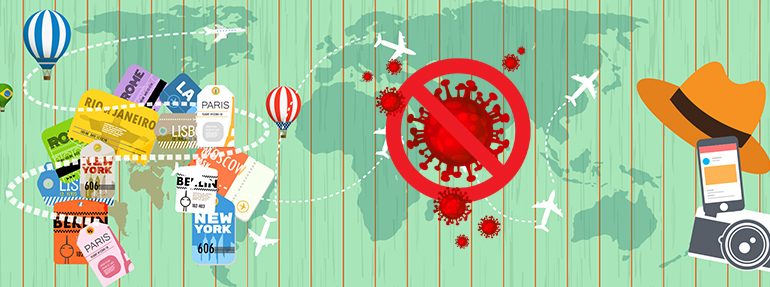The COVID-19 pandemic has resulted in the loss of lives and livelihood across the globe. Industries across the spectrum have been impacted by the pandemic, the travel and tourism industry has felt maximum impact due to grounding of planes, closure of railways, hotels, and other establishments. the sector will reel under the effects for the longest time. The government, through various initiatives, has made efforts to mitigate the impact of COVID on the industry.
When the first wave of the pandemic struck and the lockdown was imposed, most of us urged the government to open the tourism sector and allow it to survive. The second wave has been quite different- more widespread and deadly. This time around, state governments did not ask hotels to be shut but many did so voluntarily. With no business in sight, a conscious decision was taken by managements for the safety of their staff and to keep the operational costs at bay. A good example is Agra, where out of the two Taj properties, only one was kept operational.
The tourism industry has always contributed to helping people and the government during these difficult times. Many hotels offered their rooms to medical staff and patients, restaurants supplied food to hospitals and homes, banquet halls and exhibition venues were converted into hospitals. The travel trade sector used its vehicles as ambulances to ferry the sick while several companies also helped by supplying oxygen cylinders, medicines, and other essentials. The aim has been to put humanity before business– the tourism industry, despite all hardships, has been doing its best to help the nation in the times of this unprecedented crisis.
We are certain that tourism is one industry that will survive. Its recovery will be longer; it might return in a ‘W’ shape and with many challenges testing its resilience to the capacity, but it will recover well. Revenge Consumption (demand) will fuel this recovery as people would want to travel much more due to home-locked fatigue.
‘No business’ surely does not mean being ‘out of business’ and each of us is doing our best to survive and keep businesses afloat. Though there would be several inevitable changes and business disruptions in the sector post-COVID era, each business will try to recover from the accumulated losses in shortest time. To do this, businesses will multiply revenue models, form new verticals, reorganize markets, and expand into new markets. Horizons will be much wider, competition fiercer, ethics of business will have new meanings and tourism will go through a paradigm shift.
Also, it is time that the government starts planning its tourism revival strategies. Most countries are doing it, and many are even opening to tourists in a phased manner. The biggest foreseeable challenge at hand is the perception of India that needs to be changed and once again the country needs to be re-projected as a healthy and a safe destination for travelers. The task at hand is tough but possible.
The author is Chair, FICCI Tourism Committee, UP State Council and Member, FICCI National Travel, Tourism and Hospitality Committee, and President and CEO, Tornos.





